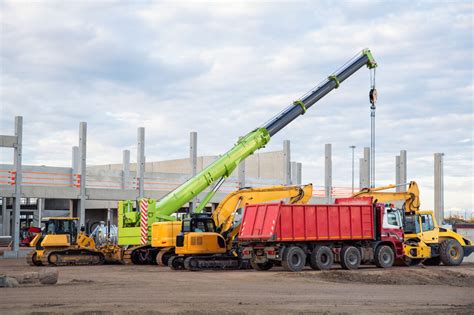Crane Rental Costs: A Guide for Contractors
Renting a crane can be a crucial part of many construction projects, but understanding the associated costs is vital for accurate budgeting and project planning. This guide breaks down the factors influencing crane rental prices, helping contractors make informed decisions and avoid unexpected expenses. We'll cover everything from hourly rates to long-term contracts, ensuring you're well-prepared for your next project.
What Factors Determine Crane Rental Costs?
Several key factors contribute to the overall cost of crane rental. Understanding these will allow you to better negotiate rates and manage your budget effectively.
1. Type of Crane:
The type of crane needed significantly impacts the rental cost. Larger, heavier-duty cranes like tower cranes or crawler cranes command higher rates due to their complexity, transport requirements, and specialized operator skills. Smaller cranes, such as mobile cranes or articulated boom cranes, are generally more affordable. The specific lifting capacity, reach, and features of the crane also influence pricing.
2. Rental Duration:
Rental costs are often structured based on the rental period. Daily rates are typically higher than weekly or monthly rates, reflecting economies of scale. Long-term contracts often include negotiated discounts, making them a cost-effective choice for extended projects.
3. Location:
The crane's delivery and setup location plays a significant role. Difficult-to-access sites, requiring specialized transportation or extensive setup time, will increase the overall cost. Urban areas with congested traffic or limited space may also add to the expense.
4. Crane Operator:
Including an experienced and certified crane operator is usually mandatory. Their hourly or daily rate is added to the crane rental cost. The operator's experience level can also affect the overall price.
5. Fuel and Transportation:
Fuel costs for the crane's operation are usually included in the rental rate, but it's crucial to clarify this upfront. Transportation costs for delivering and retrieving the crane from the job site are also important considerations, especially for projects located far from crane rental depots.
6. Permits and Insurance:
Necessary permits and insurance costs associated with operating the crane on the job site can significantly impact the overall project budget. These costs are usually the responsibility of the contractor, adding to the total expenditure.
7. Additional Equipment:
Some projects might require additional equipment like rigging gear, outriggers, or specialized attachments. These add-ons will increase the overall rental cost. Be sure to factor in the cost of any necessary supplementary equipment.
How Much Does Crane Rental Typically Cost?
Providing an exact price is difficult, as costs vary greatly depending on the factors listed above. However, you can expect a wide range, from a few hundred dollars per day for smaller cranes to several thousand dollars per day for larger, more specialized equipment. Always obtain multiple quotes from different rental companies to compare prices and services.
What are the Different Crane Rental Options?
Several rental options exist to cater to diverse project needs and budgets.
1. Short-Term Rental:
Ideal for projects with short durations, short-term rentals are charged daily or weekly. This flexibility allows for adaptability to changing project timelines.
2. Long-Term Rental:
Suitable for extended projects, long-term rentals often offer discounted rates. This option provides cost predictability and simplifies project planning.
3. Contract Hire:
This involves a formal contract outlining specific terms and conditions, providing clarity and stability throughout the project's duration.
4. Wet Hire vs. Dry Hire:
Wet hire includes the crane, operator, and fuel. Dry hire only includes the crane, requiring the contractor to arrange for an operator and fuel separately. Consider your project needs and resource availability when choosing between these two options.
How to Reduce Crane Rental Costs
Several strategies can help minimize crane rental expenses:
- Optimize the project schedule: Efficient scheduling can minimize the time a crane is needed.
- Negotiate rates: Don't hesitate to negotiate rates with multiple rental companies.
- Choose the right crane: Select the appropriate crane for the job to avoid overspending on unnecessarily large equipment.
- Plan logistics carefully: Careful planning regarding crane transport and site accessibility reduces delays and extra costs.
What are common crane rental scams to watch out for?
Be wary of unusually low quotes that seem too good to be true. Always verify the credentials and insurance of the rental company, ensuring they are legitimate and reputable. Obtain a detailed breakdown of all costs before committing to a rental agreement.
By understanding the factors influencing crane rental costs and employing effective planning strategies, contractors can successfully manage expenses and ensure their projects remain on budget and on schedule. Remember to always obtain multiple quotes and thoroughly review the contract before signing.

